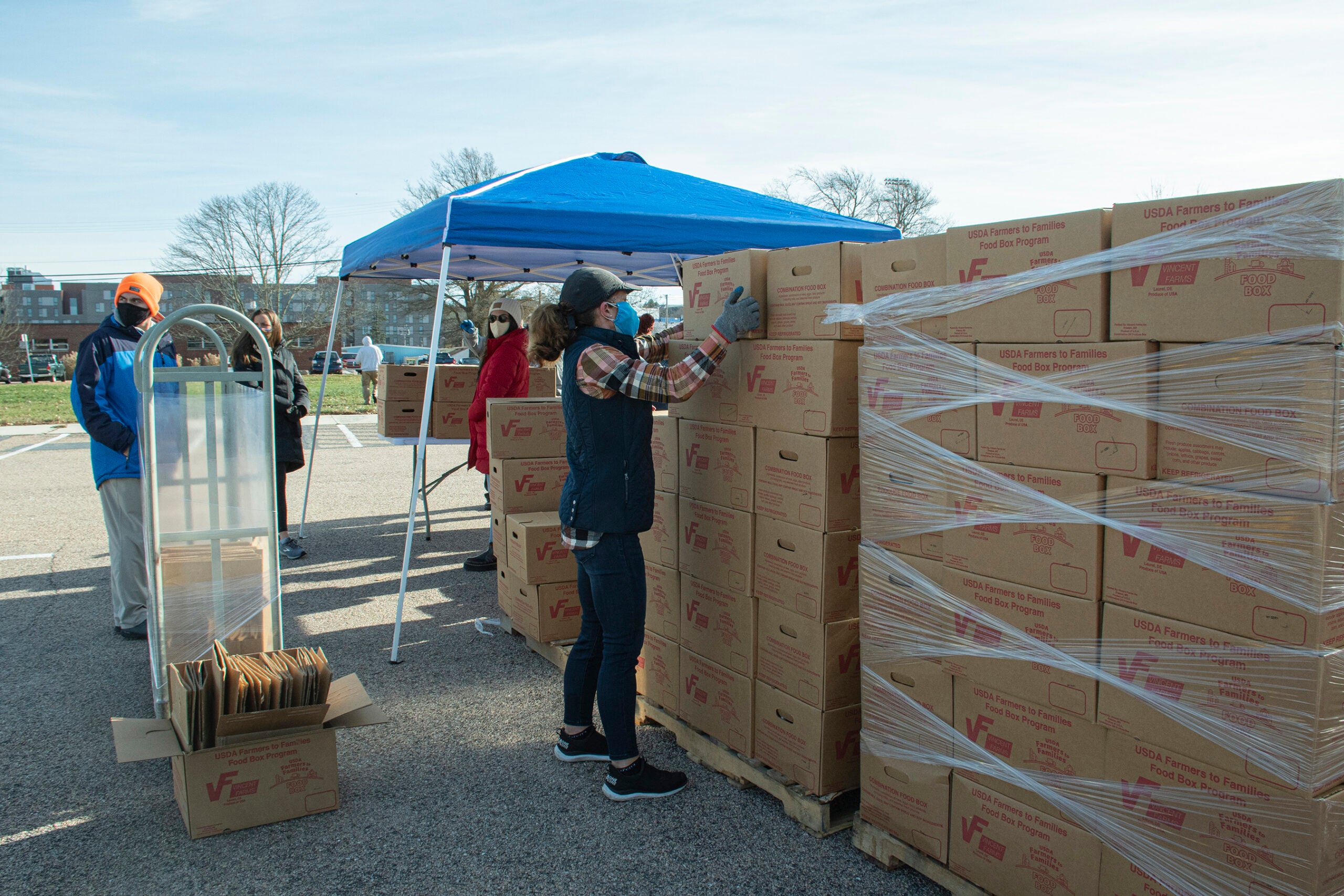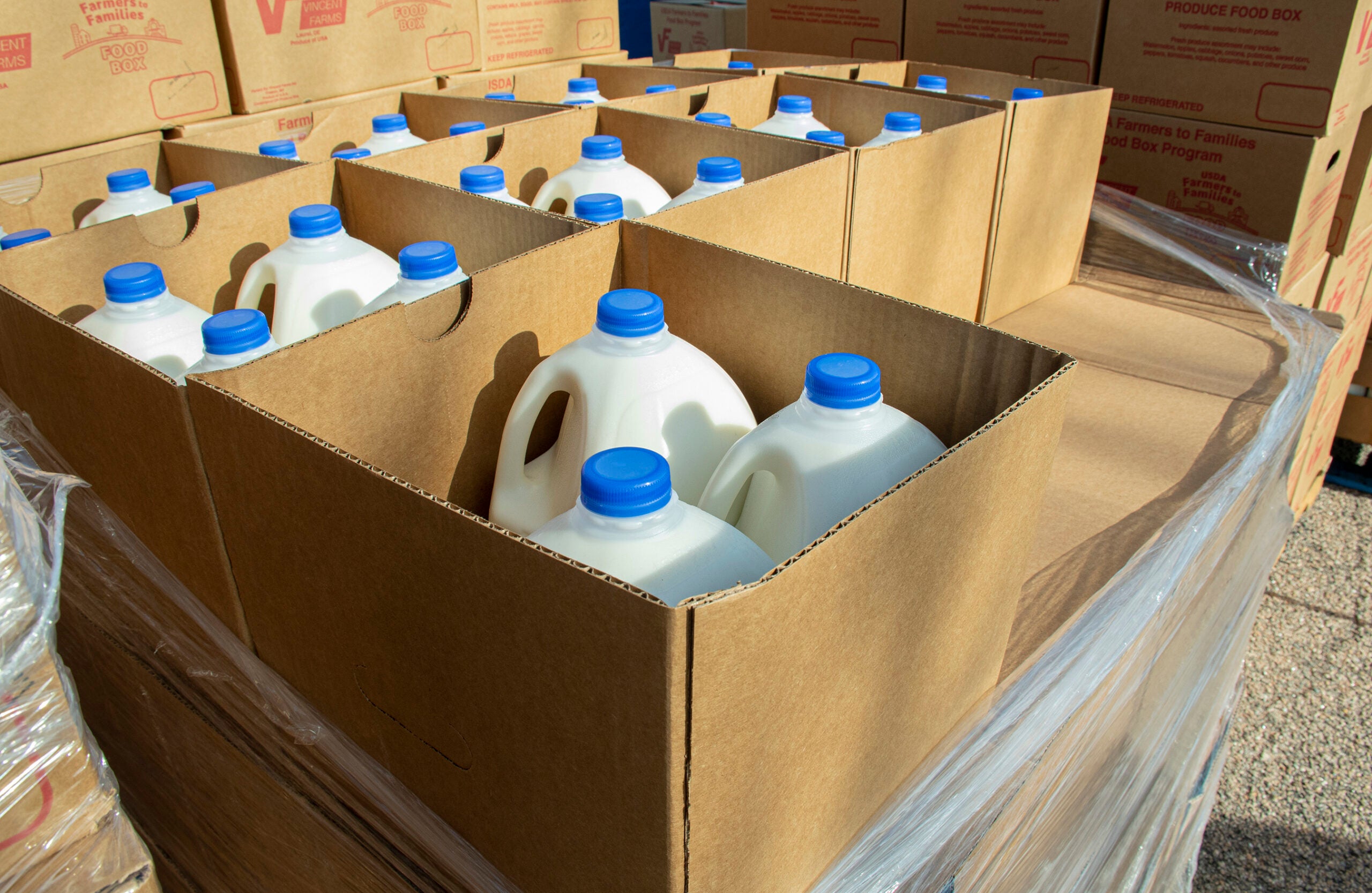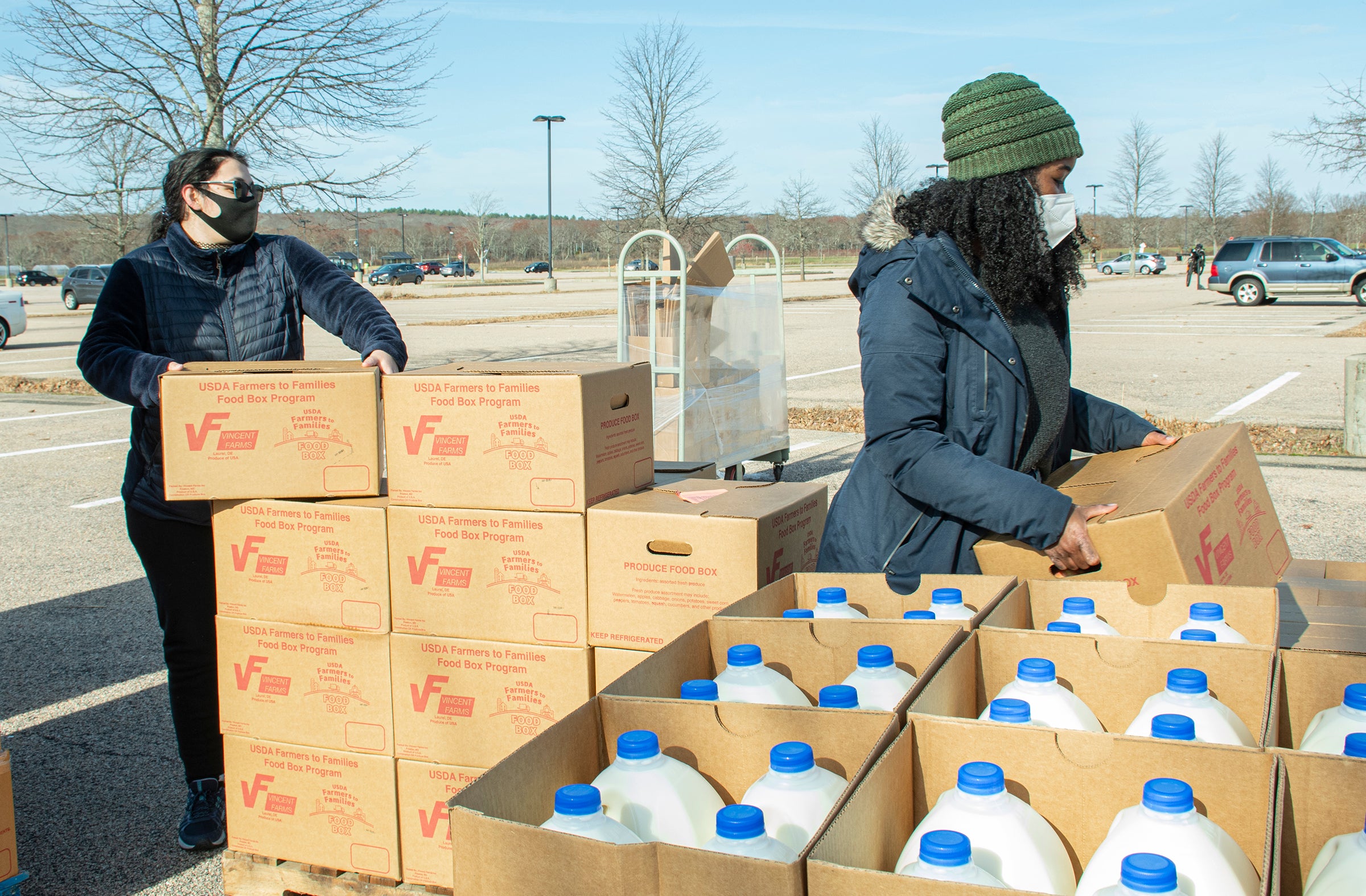KINGSTON, R.I. – Nov. 23, 2020 – In an effort to help tackle hunger, students and staff at the University of Rhode Island distributed approximately 2,400 boxes of food to members of the University community and more than a dozen local nonprofits this month. The boxes, each containing approximately 5 pounds of meat and 5 pounds of dairy products, along with 15 to 20 pounds of produce and a gallon of milk from Vincent Farms in Delaware, were distributed as part of the United States Department of Agriculture’s (USDA) Farmers to Families program.
According to the USDA, in 2019 just over one in ten households in the United States was affected by food insecurity at some point in the year. Across college campuses, food insecurity has often been referred to as a hidden epidemic, affecting roughly one-third of college students.

Sharon Pavignano, associate director of corporation and foundation relations for the URI Foundation and Alumni Engagement and founding partner of the Rhode Island Food Center, applied to the program to help meet a need on campus and in the surrounding community. Shipments arrived and were distributed on Nov. 12 and 19 in the commuter parking lot on Plains Road. This is the first time the University has participated in the program.
“The first shipment arrived on a rainy day. Our dining services, housing and health services staff were all amazing,” said Pavignano. “We set up a truck in the commuter lot, gave out about 700 boxes to those who were waiting and ran out early – all types of people have need.”
Approximately 700 boxes were handed out from Plains Road on both dates, with a smaller number going to Graduate Village and organizations on campus such as Christ the King Church and St. Augustine’s Church for further distribution. The remaining boxes were distributed to local nonprofit organizations.

“I have never seen more grateful people than I have in the past two weeks. It’s been wonderful to be able to help in this way, to receive phone calls and to know how appreciative and relieved people are for their families,” said Wayne Lizotte, a peer recovery specialist with the Galilee Mission, which supplied boxes to approximately 80 local families. “The world is so uncertain right now, but these boxes put a lot of smiles on people’s faces.” Other local organizations to receive food boxes included New Hope Pantry, the Jonnycake Center, South Kingstown School Department, the Domestic Violence Resource Center of South County and several area senior centers.
On campus, Isabelle Bise ’21, a nutrition major from West Orange, N.J. who volunteered to help pass out boxes, echoed Lizotte’s sentiment about how happy people were to receive the boxes right before the holidays. “For some this help came just in the nick of time – it was something they needed and it was great to provide it without anyone feeling embarrassed or ashamed,” said Bise. “Even though times are crazy, where someone’s next meal is going to come from is not something that should be up in the air. Everyone should have a stable source of food to nourish themselves and their families.”
According to Kelli Kidd, a nutrition specialist with URI Health Services who frequently helps connect students who may find themselves food insecure to resources on campus, many students can be hesitant to ask for help. A survey conducted in 2019 found that approximately 13 percent of URI students struggle with food insecurity, while earlier surveys have reported higher numbers. Kidd often connects students to Rhody Outpost, the campus food pantry, but says she has seen an increased need since the start of the pandemic.
Pavignano underscored the pandemic’s impact, “For students who are used to working to help fund their education, many are finding fewer jobs or fewer hours available now due to COVID-19. So there is definitely a need there.”
Pavignano thanked all those involved, including Ken Ayars, chief of the Rhode Island Division of Agriculture, who supported URI’s application to Vincent Farms, USDA’s supplier for the latest round of the program. “We really couldn’t have done this without the support of the Rhode Island Division of Agriculture, Vincent Farms and without the help of all those on campus who took part in unloading the shipments, making sure everything was refrigerated, loading the trucks back up and helping us to hand out boxes to those in need. It was truly a team effort.”

